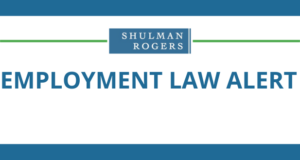
On August 30, 2023, the Department of Labor (“DOL”) published a Notice of Proposed Rulemaking (“NPRM”) which announced DOL’s intent to revise the Fair Labor Standards Act (“FLSA”) exemptions from minimum wage and overtime pay requirements for executive, administrative, professional, outside sales and computer employees. Notably, their proposal calls for a substantial increase in the minimum salary threshold for the “white-collar exemptions” to overtime requirements – meaning that millions more workers could now receive overtime pay or, alternatively, a significant increase in their salaries – to maintain their exempt status.
Proposed Rule
Under the proposed rule, the salary level for the white-collar exemptions to apply will increase from the current $684 per week ($35,568 per year) to $1,059 per week ($55,068 per year). This would be a 55% increase from the current level that became effective in January 2020 during the Trump Administration. Due to this significant increase, the DOL estimates that this would result in over 3.6 million workers receiving overtime pay if implemented. The rule also proposes automatic increases to the overtime salary threshold every three years to reflect current earnings data.
Importantly, the DOL also seeks a major (34%) increase to the total annual compensation requirement for employees to still qualify for the highly compensated employee exemption. Under this newly proposed rule, employees will have to earn at least $143,988 annually to remain eligible for the highly compensated employee exemption (up from the current annual threshold of $107,432 – which was the result of the DOL’s 2020 Rule).
This time, the DOL’s proposed increase to the salary threshold will apply to the U.S. territories, which have not seen a change since 2004. The standard salary level will apply to employees in all territories that are subject to the federal minimum wage (including Puerto Rico, Guam, the U.S. Virgin Islands and the Commonwealth of the Northern Mariana Islands).
In addition to this new, elevated, salary threshold, for an employee to qualify as exempt under the FLSA, he/she still must continue to satisfy a job duties test. The job duties test examines whether the employee’s actual job functions meet the requirements of the applicable exemption. The newly proposed rule does not make any changes to the existing job duties test.
Takeaways
It is important to note that the DOL’s proposal is not yet law and, as in the past, it is likely to face a few hurdles before (and if) it takes effect. First, the process calls for comments on the NPRM – due 60 days after its official publication in the Federal Register. Then, DOL will consider all comments received before publishing a final rule. DOL’s proposed, vast increase to the overtime salary threshold (during the Obama Administration) was challenged in court in 2017 and never actually went into effect. Look for this proposed rule to be challenged as well.
CONTACT |
MORE INFORMATIONThe contents of this Alert are for informational purposes only and do not constitute legal advice. If you have any questions about this Alert, please contact the Shulman Rogers attorney with whom you regularly work or a member of the Shulman Rogers Employment and Labor Law Group. To receive Employment Law Alerts and other timely news and information from Shulman Rogers, please click HERE to subscribe. |
Stay up to date with all the latest news and events.